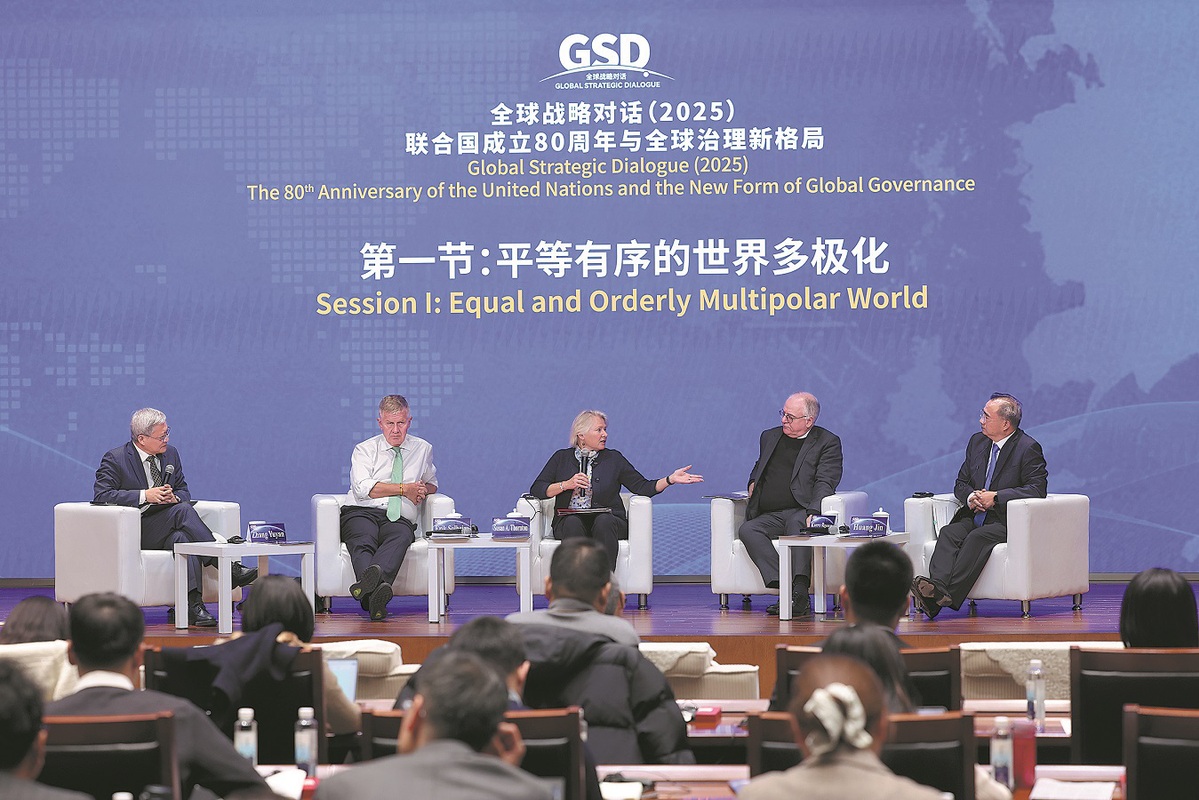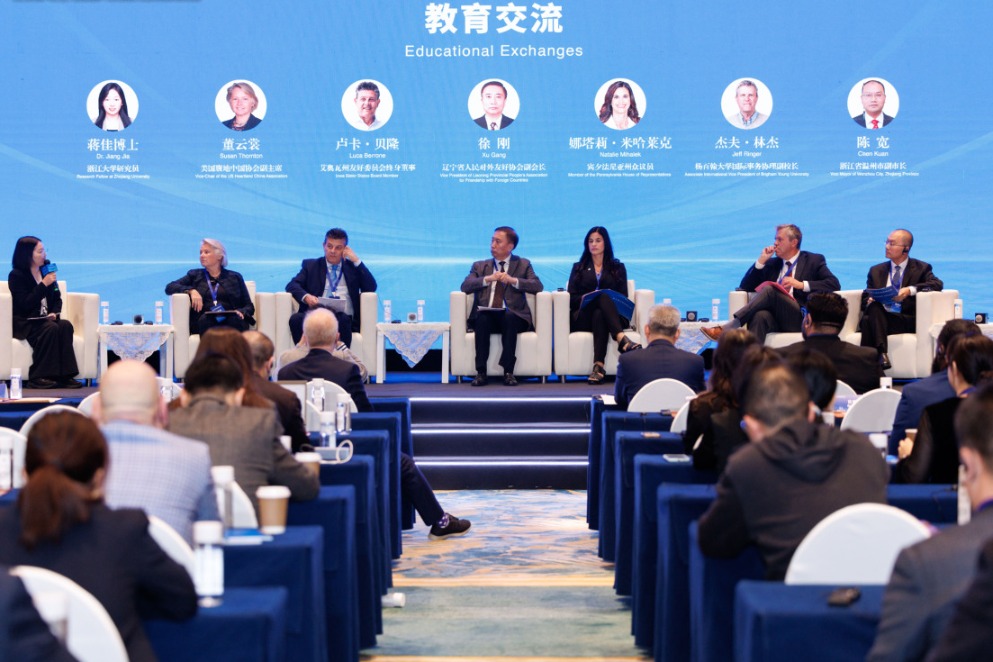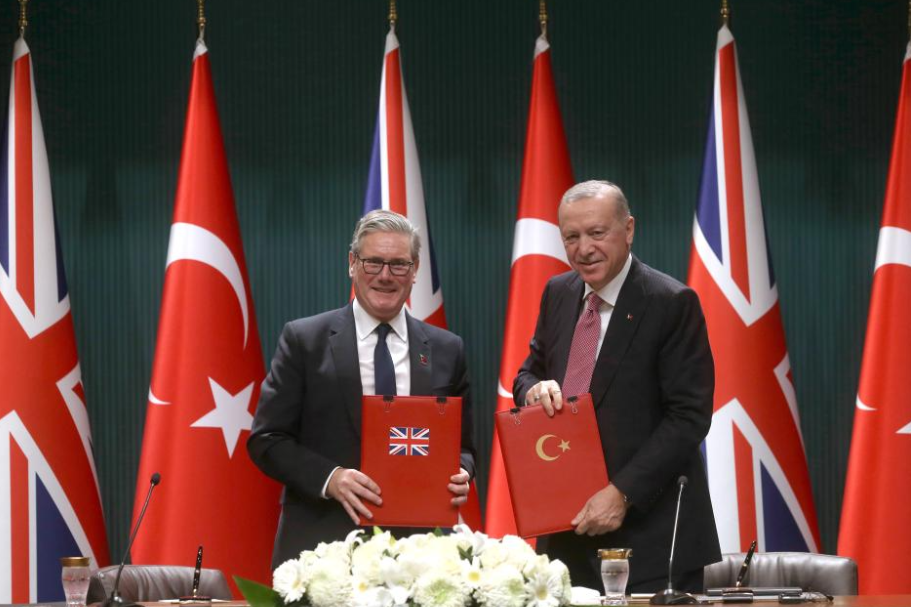Forum calls for joint efforts to boost global governance


The most pressing current task is to direct coordinated efforts to safeguard multilateralism and the efficacy of global governance, prominent political figures, scholars and media executives said on Tuesday.
They made the observations at the Global Strategic Dialogue (2025) forum, which was co-hosted by the Chinese Academy of Social Sciences and China Daily in Beijing.
As this year marks the 80th anniversary of the founding of the United Nations, the theme of the forum was "The 80th Anniversary of the UN and the New Form of Global Governance".
At the forum's opening, speakers noted the widespread acceptance and admiration that the Global Governance Initiative, put forward by President Xi Jinping last month, has garnered.
In his address, Gao Xiang, president of the Chinese Academy of Social Sciences, emphasized the need to uphold multilateralism, mutual benefit and mutual appreciation.
"The remarkable achievements in economic development and social progress made by humanity in the past few decades can be attributed to the lessons learned from the two world wars and the Cold War, as well as to the fact that we have followed the historical trend of economic globalization," Gao said.
He called on nations to continue to advance equal and orderly multipolarity, universally beneficial and inclusive economic globalization, as well as common modernization featuring diversity and coexistence.
"As we now mark the 80th anniversary of the end of World War II and the founding of the UN, we must always bear in mind the past sufferings of humanity, the purposes and principles of the UN Charter and the aspiration of people around the world for a better life," he said.
Djoomart Otorbaev, former prime minister of Kyrgyzstan, said the present is a good opportunity to reflect on the past and look to the future. He noted that the UN has launched bold efforts in recent years to adapt to the changing world, yet "deeper problems remain".
"Global institutions face a legitimacy crisis, and technology from artificial intelligence to cyber warfare is evolving faster than our capacity to govern. Our regulators are coming later when real business is moving ahead," Otorbaev said.
He noted that new ideas "that reflect the multipolar nature of our time" are emerging when he referred to the GGI proposed by Xi, which he said is "a vision to reform, not to replace, the existing order".
The initiative is "the answer to the growing call for fairness, equality and accountability", he said, adding that "it is not about replacing the UN, it is about revitalizing it, making it reflect the diversity and dignity of today's world".
Qu Yingpu, publisher and editor-in-chief of China Daily, called for greater efforts to enhance global governance for a multipolar world, prioritize development while advancing economic globalization, cement the foundation for peace while seeking coordinated global security, and deepen mutual learning among civilizations.
A multipolar world is not about bloc confrontation or a return to geopolitical games, and "it is about making sure that every country, regardless of its size or strength, has the equal right to participate in international affairs", Qu said.
"We should resolutely oppose certain countries' wielding the stick of tariffs, and should promote the building of an open world economy. By pursuing mutual benefit, we can secure common interests and achieve common development," he said.
He added that in the face of complex security challenges, countries should move beyond the outdated zero-sum mentality, address risks with a spirit of unity and resolve disputes through a win-win approach.
Erik Solheim, chair of the Europe-Asia Center and former under-secretary-general of the UN, said the world's future "will be multilateral and multipolar", and "there is no way one or two powers can dominate the 21st century".
Solheim emphasized that the new global system must reflect the changes in the world.
Speaking of the details of the GGI set out by Xi, Solheim said that these are the best principles for a better future.
"If we work together, we can resolve all major problems. If we allow some leaders to split us or some political forces to split us, we are very weak," he said, expressing his optimism about the world's future, noting that humanity has faced many crises in the past.






























